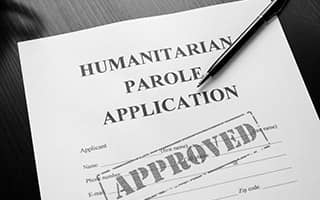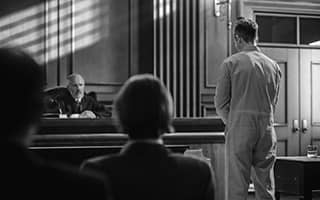Instant Court Case Lookup
The following is for information purposes only
Table of Contents
Parole

Parole is the conditional release of an inmate from incarceration before the full sentence is served, allowing supervision in the community under specified rules. Unlike probation, which is a court-ordered alternative to imprisonment, parole comes after a period of confinement. It is granted based on an evaluation of the inmate's behavior, rehabilitation progress, and risk of recidivism.
The purpose of parole is to facilitate the reintegration of offenders while maintaining oversight to reduce recidivism. Additionally, parole serves to reduce prison overcrowding while incentivizing positive inmate behavior with participation in educational, vocational, or treatment programs.
Federal and state parole authorities operate differently. At the federal level, the U.S. Parole Commission manages parole for pre-1987 federal convictions, District of Columbia offenders, military prisoners, and some international cases. Most federal convictions now use determinate sentencing, meaning inmates serve fixed terms without the possibility of discretionary parole.
State parole systems differ across jurisdictions. Some states, like California and Texas, maintain active parole boards that conduct structured reviews. In contrast, states like Florida and Illinois have limited or completely abolished discretionary parole.
Types of Parole
Parole encompasses several types, each designed for specific circumstances and legal frameworks.
-
Discretionary Parole: This type of parole is granted at the discretion of a parole board. Inmates become eligible after serving a portion of their sentence. The board then assesses the inmate's conduct, rehabilitation efforts, psychological evaluations, and the severity of the original offense.
In discretionary parole, formal hearings are held, which typically include victim impact statements, review of rehabilitation progress, and evaluation of risk assessments, to assess an inmate's suitability for release. The board then imposes conditions tailored to public safety and reintegration.
-
Mandatory Parole: Mandatory parole, also known as statutory release, occurs automatically once an inmate completes a legislatively defined portion of their sentence, typically after accounting for good behavior credits.
This release is usually structured by law and does not require a parole board hearing. While the release is automatic, individuals remain under supervision, and violation of the conditions can trigger revocation.
-
Medical and Compassionate Parole: This parole type provides early release for inmates with terminal illnesses, severe medical conditions, or extraordinary humanitarian circumstances.
Medical and compassionate parole allow eligible individuals to serve the remainder of their sentence under community supervision or in a specialized care facility. Eligibility for these releases requires medical verification, low recidivism risk, and assurance of public safety.
Programs exist in states such as New York, Maryland, and Oregon, and the federal system operates a similar compassionate release under 18 U.S.C. § 3582(c)(1)(A).
State-specific parole systems illustrate the diversity of implementation. For example, the California Board of Parole Hearings evaluates both discretionary and conditional releases, including consideration for lifers and long-term inmates.
Additionally, the Texas Board of Pardons and Paroles manages parole eligibility, supervision conditions, and revocations statewide, combining rehabilitative oversight with public safety priorities. Other states maintain similar boards with varying eligibility thresholds, review procedures, and reporting requirements.
The Parole Process
The parole process follows a structured legal and administrative framework designed to evaluate an inmate's readiness for supervised release before completing their sentence.
-
Eligibility Criteria: Eligibility for parole depends on statutory requirements, such as the portion of the sentence served, typically one-third to one-half, good institutional behavior, and demonstrated rehabilitation.
-
Parole Hearing: During the hearing, the parole board reviews the institutional report, psychological evaluations, and reentry plan. Victims may provide statements, and the board assesses whether release aligns with public safety. Outcomes may include approval, denial, or deferral for future review.
-
Conditions of Parole: Parolees are required to follow specific supervision conditions, which may include regularly reporting to a parole officer, maintaining lawful employment, completing drug testing, and adhering to travel restrictions.
-
Revocation of Parole: If a parolee violates the terms of parole or reoffends, a revocation process is initiated. Revocation involves hearings and possible incarceration. Technical violations may result in stricter supervision rather than immediate return to custody, emphasizing rehabilitation and accountability.
Rights and Responsibilities of Parolees

Parolees may experience partial restoration of rights depending on state law. Voting rights are typically reinstated after parole completion, though some states require separate applications or executive clemency.
Employment and housing access often remain limited due to criminal history checks, residency restrictions, or licensing barriers. Ban-the-Box initiatives in several jurisdictions aim to reduce employment discrimination against individuals with criminal records.
Parolees are required to regularly report to their assigned parole officers, maintain approved housing, and demonstrate lawful employment or participate in an educational program. Additional conditions may include curfews, counseling, and drug testing.
Violating parole conditions, such as committing new crimes, missing scheduled check-ins, or failing to comply with supervision requirements, can lead to revocation proceedings, additional sanctions, or reincarceration.
Successful completion of parole, however, typically restores remaining civil rights and strengthens eligibility for full reintegration into society.
Public Access to Parole Records
Parole records provide official documentation of an individual's conditional release from incarceration, including release dates, supervision conditions, violation reports, and status updates.
These records also indicate whether parole has been completed, revoked, or extended. Information such as release schedules and conditions is accessible to victims, law enforcement agencies, and, in some cases, the public.
Public vs. Confidential Records
Most information on adult parole records, such as the parolee's name, conviction type, offense classification, and release date, is publicly accessible through state corrections databases or parole board registries.
However, privacy laws restrict public access to sensitive information involving juveniles, medical or compassionate parole cases, and psychological evaluations. Victim statements and residential addresses are also protected to safeguard personal privacy and prevent misuse.
How to Search Parole Records Online
Most state departments of corrections offer online lookup tools that display parole status and supervision details. At the federal level, the Bureau of Prisons (BOP) provides an inmate locator, while the U.S. Parole Commission (USPC) handles federal and D.C. offender data.
Accessing Parole Records Offline
For certified or comprehensive records, individuals may submit written requests to state parole boards, correctional clerks, or the record division. Requests typically require a valid ID, case number, and applicable processing fee. Records can be retrieved by mail or in person, following the specific state's disclosure and confidentiality regulations.
Frequently Asked Questions About Parole
Here are answers to questions commonly asked about parole.
Who decides whether an inmate is granted parole, and how often can they reapply if denied?
Parole boards or commissions determine whether an inmate qualifies for release based on eligibility criteria, behavior, and rehabilitation progress. If parole is denied, inmates may reapply after a waiting period, typically one to five years, depending on state law and board regulations.
Can a parole decision be appealed or challenged in court?
Yes. Parole decisions can be appealed through administrative review or challenged in court if due-process rights were violated, procedures were mishandled, or the decision lacked sufficient evidence.
What happens if a parolee moves to another state?
Under the Interstate Compact for Adult Offender Supervision (ICAOS), parolees who move to another state can transfer supervision, provided both states approve the move and all reporting requirements are maintained.
Is parole available for life sentences without parole (LWOP) or death penalty cases?
No. Individuals serving life without parole or death sentences are ineligible unless the sentence is later reduced or commuted by executive clemency or judicial order.
How long does the typical parole supervision period last?
Parole generally continues until the original sentence term expires. However, some states permit early discharge for parolees who consistently comply with conditions and demonstrate meaningful rehabilitation progress.
What factors most commonly lead to parole denial?
Parole may be denied due to offense severity, disciplinary infractions, lack of remorse, weak rehabilitation evidence, or insufficient reentry preparation.
Can a parolee travel internationally or leave the country while on parole?
No. Parolees cannot travel internationally or leave the country without authorization from their supervising officer and the parole authority.
Are parole records automatically expunged or sealed after completion?
No. Parole records remain part of an individual's criminal history unless the individual formally files a motion to have the record sealed or expunged.
How does parole differ between federal and state inmates today?
Federal parole was abolished in 1987 and replaced with supervised release. State parole systems still operate independently, granting conditional early release under varying statutes.
Do parole officers have the authority to arrest parolees directly?
Yes. Parole officers can arrest parolees who violate conditions or issue detainers pending investigation or revocation hearings.
How do "good time" credits or earned-time laws interact with parole eligibility?
Good-time or earned-time credits shorten the time an inmate must serve before becoming eligible for parole consideration, reflecting positive institutional behavior.
Can parole be revoked for minor offenses or non-criminal violations like missed curfews?
Yes. Technical violations, such as missed appointments, can result in sanctions or revocation, though modern policies favor community-based alternatives over reincarceration.
What is the difference between supervised release and parole at the federal level?
Supervised release begins after completing a prison sentence, while parole allows early release before the sentence ends. Both require compliance with supervision conditions.
Do all states currently have a functioning parole system?
No. States such as Florida, Illinois, and Maine have abolished discretionary parole, relying instead on fixed sentencing or earned-release frameworks.
What rights do parolees have if they believe they were unfairly returned to custody?
Under Morrissey v. Brewer (1972), parolees are entitled to a revocation hearing, legal representation, and the opportunity to present evidence challenging alleged violations.